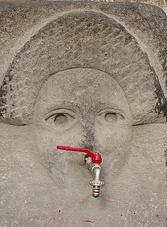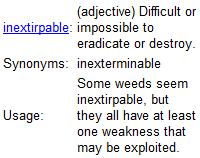The Pentagon’s new policy directive and field manual on interrogations seems a step in the right direction and, indeed, Human Rights Watch has praised the move while condemning other Bush policies. These directives will apply to all branches of the military and so, it seems, they will be applied in locales under Defense Department control, such as Guantanamo.
But I’m wondering if, in the end, these new directives aren’t for the most part just more Bush administration sleight-of-hand. It is very important to note that these “new rules” apply only to interrogations that are conducted under the purview of the Defense Department. In other words, the CIA, in one of the newly-acknowledged secret prisons or “black sites,” can conduct interrogations as it sees fit, particularly if the interrogators are not on American soil and not subject to American law. And if the “interrogators” are citizens of a host country that allows torture, well, then, it seems to me that anything goes. As a Washington Post article stated,
But while the policies apply to all Defense Department employees and contractors, there are no safeguards in the event a CIA employee takes custody of a detainee and moves him into a separate, nonmilitary, facility.
One can imagine that the “14 top-level terrorism suspects” that were transferred from a CIA “secret prison” to Guantanamo have been thoroughly worked over and that nothing more can be wrung out of them, so it is no problem to give them prayer rugs and kinder, gentler treatment, especially since they will likely be locked up indefinitely.
Furthermore, the Defense Department reserves the right to “update” this manual; in other words, make amendments to it if they like, and it is unlikely that any such amendments will garner the media attention that was given to the initial publication.
And what about the timing of these announcements, right before the election? By acknowledging the secret prisons, but, at the same time issuing kinder, gentler rules of interrogation, the President gets to appear both “tough on terror” and reasonable. If any Democrat should stand up and criticize the secret prisons, Bush can refer to the techniques used in those prisons, as he did yesterday, as “harsh,” but not “torture.” What is the difference between a “harsh” interrogation method and a torturous one, in the President’s mind? I doubt that we will ever know for sure. But what I do know for sure is that any Democrat who stands up and critiques these prisons will be labeled by some Republican hit man, Bill Frist or the like, as “soft on terror.”
And doesn’t Bush get to stand on his terror soapbox now that the September 11th anniversary is coming up? It’s déjà vu all over again.





















![Iceberg (visible and invisible part) [explored 25/04/2024] Iceberg (visible and invisible part) [explored 25/04/2024]](https://live.staticflickr.com/65535/53567620448_3a3058b0a9_s.jpg)









Leave a comment
Comments feed for this article